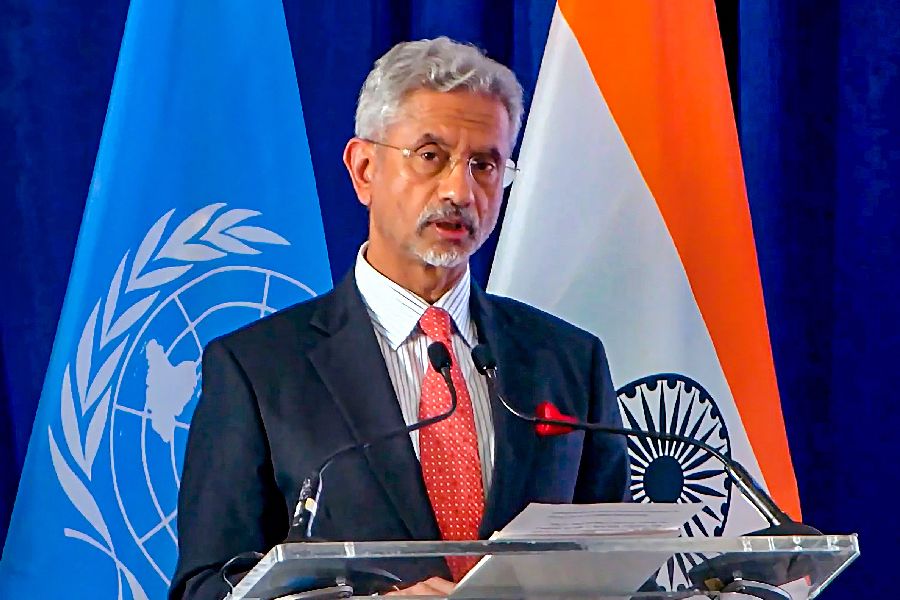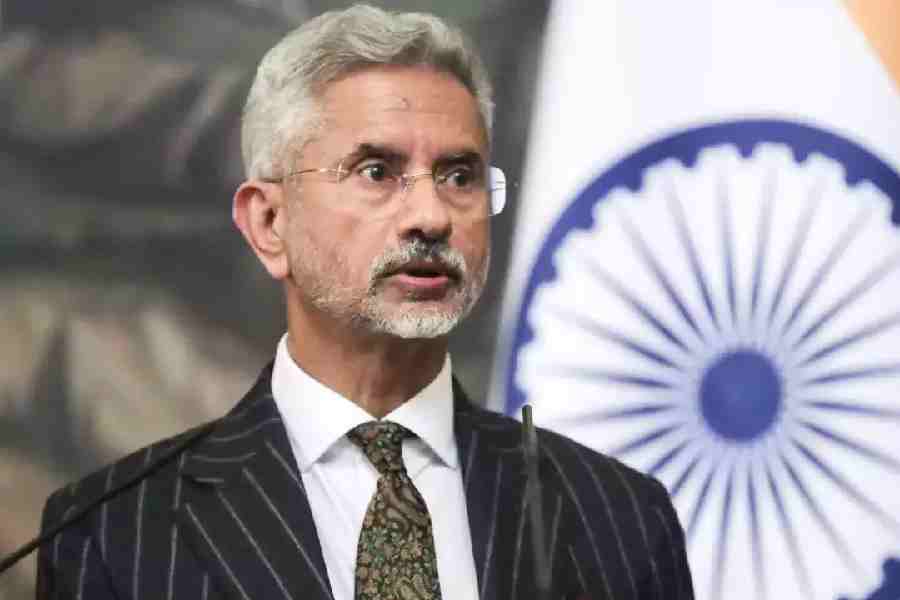India’s G20 Presidency was “challenging” as it came amid “a very sharp" East-West polarisation and “very deep” North-South divide, External Affairs Minister S Jaishankar has said.
The remarks by Jaishankar came at a special ‘India-UN for Global South: Delivering for Development’ side event he hosted here on Saturday on the margins of the 78th session of the UN General Assembly.
"We meet just a few weeks after the New Delhi G20 Summit, a summit which took place on the theme of ‘One Earth, One Family, One Future’. Now, it was a challenging summit. It was actually a challenging presidency,” he said The event saw participation from dignitaries at the UN as well as Foreign Ministers from Asia, Africa, Latin America, the Caribbean and the Small Island States.
“It was challenging because we were confronting a very sharp East-West polarisation as well as a very deep North-South divide. But we were very determined as the presidency of the G20 to make sure that this organisation on which the world really had put so much hope,” was able to get back to its core agenda of global growth and development.
“We do believe that the New Delhi Summit of the G20 has in many ways laid the foundation for the international community really to look at its development prospects, hopefully with greater optimism, certainly, in our expectation, with more resources and that the decade ahead would allow us really to overcome the challenges that we have all experienced over the last few years,” he said. Jaishankar emphasised that while India has a few more months of its G20 Presidency left, “both before the G20 presidency and certainly after it, we will remain very much a partner, a contributor, a collaborator, in our own way perhaps an inspiration to others, on how to address developmental challenges.
“Our experiences and our achievements we place before you in a spirit of sharing,” he said.
He said that when it has come to South-South cooperation, “we have endeavoured to walk the talk.” He also underlined that one of the really important outcomes of the G20 was the membership of the African Union into the grouping.
Jaishankar said it was appropriate that India started its G20 presidency by convening the ‘Voice of the Global South Summit’, an exercise which involved 125 nations of the South.
He added that through this exercise, it was very clear to India that the “global South, in addition to bearing the consequences of structural inequities and historical burdens," was plagued by the impact of economic concentration, was suffering from the devastating consequences of COVID19 and was beset by conflict, tensions and disputes which had stressed and distorted the international economy.
Geopolitical calculations and geopolitical contests “are impacting very basic requirements of many countries”, including affordable access to food, fertilizers and energy.
“It was therefore, for us, a particularly onerous responsibility to make sure that in collaboration with all our G20 members, we were able to refocus the G20 on the urgent and pressing needs of the Global South,” Jaishankar said.
He added that this was reflected in eight key outcomes of the New Delhi G20 Summit including the Action Plan for Sustainable Development Goals, the reform of international financial institutions, a green development pact, the high principles for LiFE, the Lifestyle for Environment initiative and an understanding on debt management.
President of the 78th session of the General Assembly Dennis Francis said at the event that India’s recent G20 Presidency marked a historic milestone, being the first to usher the African Union into the group as a permanent member – a strong symbol of solidarity and cooperation across the Global South.
“India’s legacy of contributions serves as a guiding light – encompassing endeavours such as championing democracy, promoting women-led development, and being among the pioneers in adopting the UN’s Global Goals.
"Indeed, it is a matter of great honour for me to follow in the footsteps of Vijaya Lakshmi Pandit, the first-ever female President of the General Assembly, whom India proudly entrusted to the United Nations,” he said.
Francis said the event echoes the message of the G20 Summit: “Vasudhaiva Kutumbakam” – the world is one family, and we must support each other.
From bolstering digital public infrastructure and innovative capacity-building to strengthening the existing supply chains and addressing the debt crisis, India is setting an example for many UN member states from the Global South, he said.
“Indeed, India’s recent lunar mission, landing on the moon’s south pole, showcases the power of science and technology and what can be achieved when all countries have access to them.
"Undoubtedly, these foster inclusive and sustainable development, benefiting the entire Global South, and I commend India’s pioneering role in its endeavours,” Francis said.
Except for the headline, this story has not been edited by The Telegraph Online staff and has been published from a syndicated feed.











